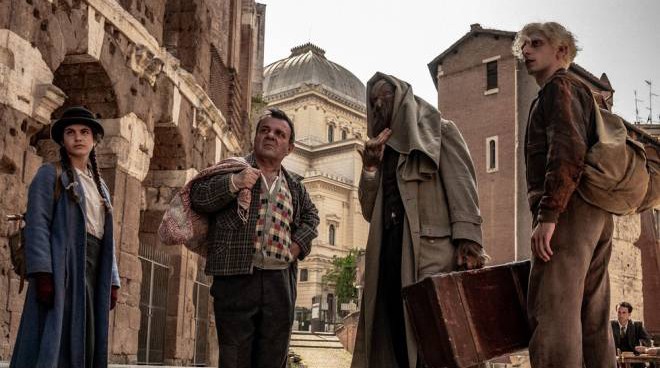Avatar: The Way of Water
Perhaps one of the most risky endeavours of contemporary cinema, Avatar: The Way of Water certainly belongs to the plethora of sequels that successfully continue and expand the storyline of its original film, yet at the same time manages to maintain a balance between similitudes and differences.
Thirteen years have passed since James Cameron surprised worldwide audiences with the mesmerizing world of Pandora in his Avatar (2009), the most high-tech film of its time with in its heart a storyline worthy of the greatest classic epic blockbusters of the nineties, a sort of ultimate science fiction kolossal. Even more years have passed in-universe. The Way of Water is not anymore the story of a single main character, Jake Sully, but a choral tale of him and his and Neytiri's family. The main characters of the first installment have a ridimensioned screen time - no less impactful - to allow the introduction of a whole series of characters of the next generation. Truly, the characters central to Way of Water are Lo'ak (Britain Dalton), Neteyam (Jamie Flatters), Spider (Jack Champion), Tsireya (Bailey Bass).The lenght (over three hours) is thus justified by the introduction of so many parallel storylines. Despite the potential chaos that the presence of so many characters could constitute, Cameron's film keeps enough balance to provide an emotional connection to each and every new character in one way or another.
Of course, visuals are what sold the first film, and so is the case with Way of Water, again, with a distinct use of colours but a similar use of zoom and photography. While it is true that it is an expansion of the lore of the first film, in terms of characters and worldbuilding, through its new settings, new populations, it is also true that its scope is somehow smaller. It is a connective story that is perhaps least massive and epic when compared to Avatar, but this should not be interpeted as a negative aspect. As the 2009 film was very conclusive, Way of Water had to re-elaborate and reconstruct a new system of conflicts that are to be further developed in the future movies - that is why Cameron is so anxious about the results of the box office: certain stories that we see begin in Way of Water simply cannot be resolved in merely one other film, the five movies plan is entirely justified. This also does not mean that Way of Water's story is open ended, it has a satisfying ending. Cameron's Avatar franchise feels now multi-generational and vast in a similar fashion to Frank Herbert's Dune.
Of course, Way of Water draws from Cameron's entire filmography, aside from Avatar. The Abyss and Titanic seem to have major influences on the themes and action of the film.
In an age that sees too many studio-driven franchises and derivatives of pre-existing corporate assets, James Cameron's Avatar: The Way of Water feels more auteurship-driven, original and a delightful entry, as was George Lucas' Star Wars. Hopefully, it will have enough success to kickstart a long lasting saga worthy of entering the annals of cinema.


Comments
Post a Comment